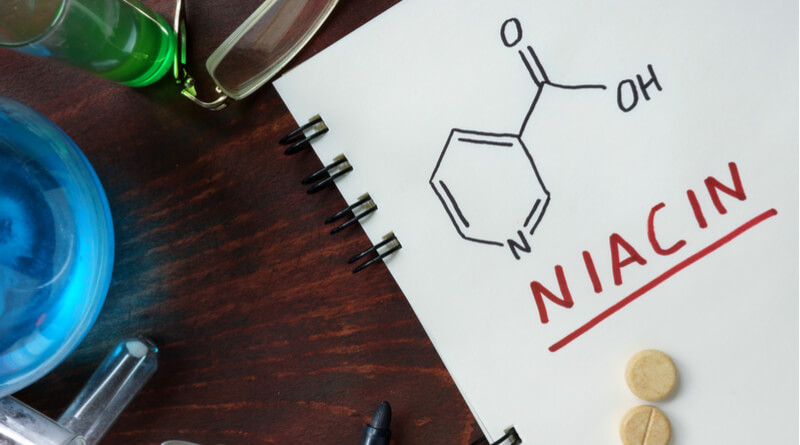Have you ever considered the reason your doctor prescribes prenatal vitamins to expecting mothers? It is a really simple reason; your body needs specific vitamins and minerals when you are pregnant. Expecting mothers are not just eating for two, they are also providing the essential nutrients for the developing fetus. This is why dieting and eating plans become such a big deal when a woman becomes pregnant. Without proper nutrition, not only will the mother be in potential danger, but the unborn child risks developing health complications, including birth defects.
One of the more important vitamins to be mindful of during pregnancy is vitamin B3, otherwise known as niacin. This vitamin plays a very important role for the human body in general and for the expecting mother and child especially. It is essential for fetal brain development, keeps the nervous system, skin, and mucous membranes healthy, and improves digestion, relieves migraines, and eases nausea. Niacin has many different health benefits to offer as well. Consuming niacin will help to improve your digestion, reduce the pain of debilitating migraines, and treat nausea.
An expecting mother needs approximately 18 mg of niacin every day. You can include niacin in your diet naturally by eating certain foods. Some of the most niacin rich foods include, sunflower and chia seeds, organ meats (kidneys, livers, and hearts), and fatty fish. Be careful when consuming fish while pregnant due to its high mercury content (take extra precautions to make sure you are aware of the mercury content).
Although niacin is most definitely an important vitamin for pregnant women and unborn children, it does come with a warning. You should avoid overdosing on vitamin B3 during pregnancy. Doing so can lead to dizziness, diarrhea, and nausea, not something you want more of while pregnant








